
I used to think it was silly to preserve lemons because they were available year round at the store whenever I happened to need one. Then I tried my first Meyer lemon and preserving lemons became a necessity. We have an amazing lemon tree that gives us several hundred pounds of lemons each year. So, every year you’ll find me freezing, dehydrating, and fermenting lemons.
My ultimate goal is to have lemons preserved for the entire year. This includes juice for lemonade during the summer, zest and juice for cooking, dehydrated lemons slices, lemon salt and sugar and fermented lemons.
There are several ways to make fermented lemons, which a lot of people call ‘preserved lemons’ and use the terms interchangeably. You can use an airlock system …or not, you can use whey or culture starter….or not, you can cut the lemons….or not. Truly, fermenting lemons is a very versatile process, which is true of fermenting most foods.
Fermenting lemons appeals to me for several reasons. One is that you use the entire lemon. Fermenting lemons makes even the rind edible. Another reason is that preserved lemons are pretty simple to make and no special equipment is needed.
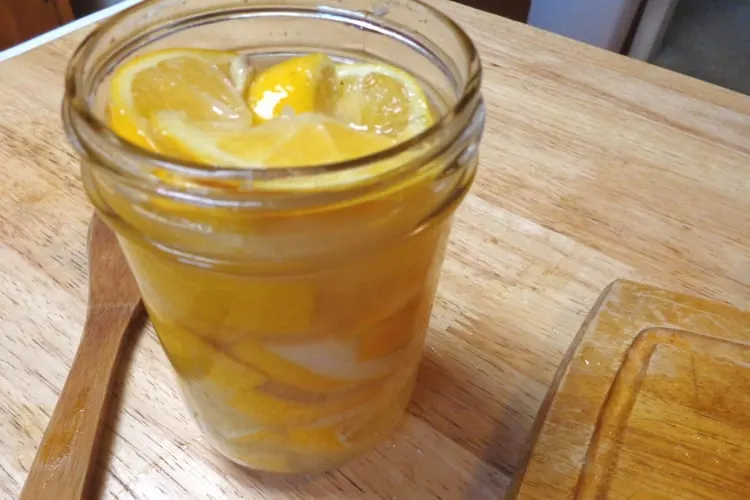
How to make fermented lemons
I like to make fermented lemons with just salt and lemons. The salt and lemon juice will combine to make a brine which will inhibit mold from growing and will allow beneficial bacteria to grow. I’ll link to some other ways make fermented lemons below.
To make a quart size jar of preserved lemons you need 5-6 organic lemons, 3 tablespoons of sea salt, and a wide mouth quart size mason jar and lid. That’s it!
First make sure your lemons are clean. Since we grow our lemons I just make sure there’s no bird droppings or visible dirt on them. If there is I wash them, if there isn’t I don’t.
Next, cut the lemons into pieces. You can cut them into quarters but not quite all the way through. That way when they come out of the jar the whole lemon will come out together. Or, if you don’t care about that just quarter them, or cut them into slices or chunks. Whatever look you like best is fine.
Sprinkle salt on the inside of the lemon and put it into your mason jar. (I sterilized mine, like I do when I’m canning). Continue cutting and salting and putting the lemons in the jar. When the jar is full, squish the lemons down and add more.
When the jar is completely full and if the lemons aren’t totally submerged in the juice, juice another lemon or two and add the juice to the top. Sprinkle with the last of the salt. Put plastic wrap over them and pushed the lemons down. You want to make sure that they stay totally submerged in the lemon juice.
Put the lid on and set on the counter. You’re going to let them sit out for two weeks. Make sure to turn over the jar upside each day to keep the salt from settling. After two weeks put them in the refrigerator. This will slow down the fermenting process.
You can also ferment lemons using a brine or culture starter.
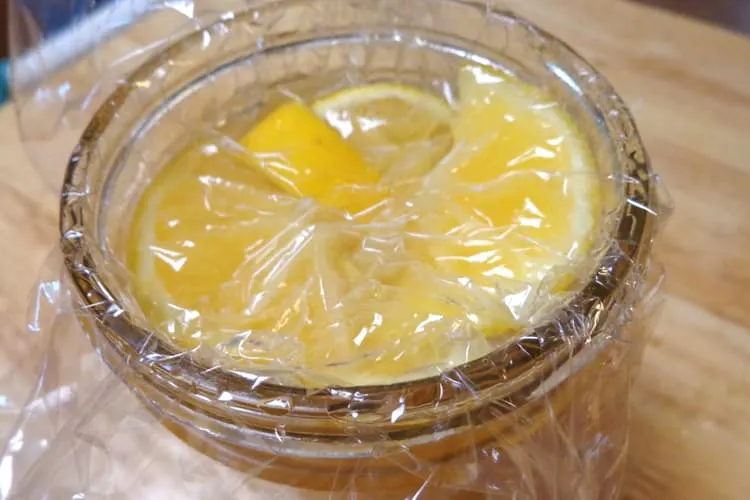
How to use fermented lemons
Preserving lemons by fermenting really mellows the lemon flavor making even the rind edible. Meyer lemons are sweeter and more mild than regular lemons but I wouldn’t munch on the rind…unless it’s fermented.
Before using fermented lemons I like to rise them off and pat them dry as I find saltier than I like. A lot of people don’t rinse the fermented lemons so try it both ways and see what you prefer.
Fermented lemons can be used in anything you would use fresh lemons in. I think they are wonderful on baked fish and in lemon chicken stir fry. You can also use preserved lemons in pasta or soup. They can also be used in sweet dishes like double lemon pound cake or how about a ginger lemon pound cake?
Here’s an interesting sweet preserved lemons recipe, these would be wonderful for tea.
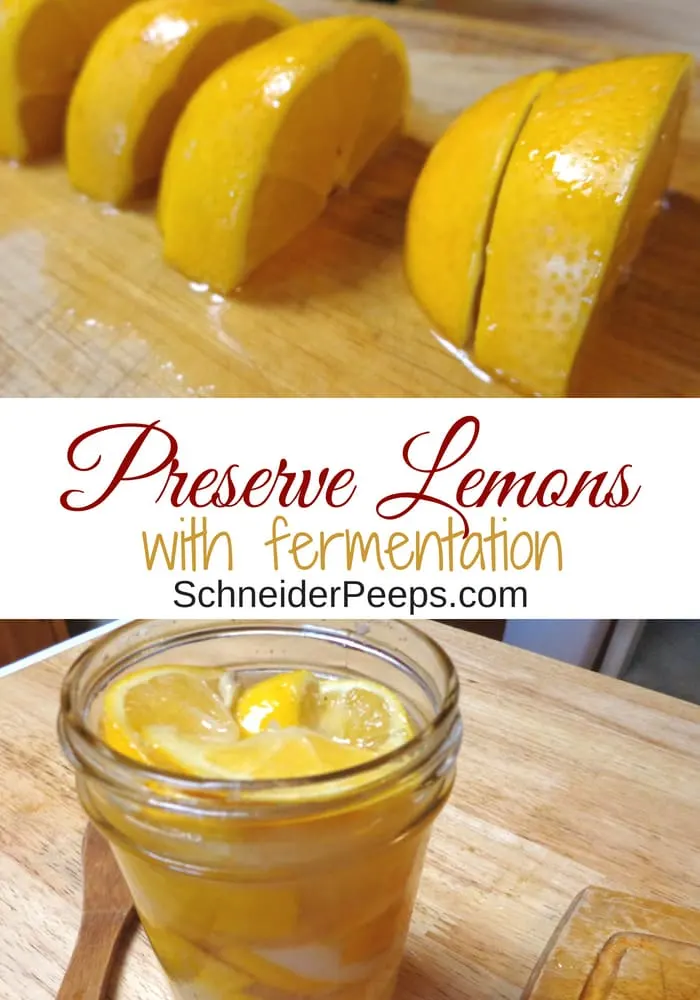
Fermented {Preserved} Lemons
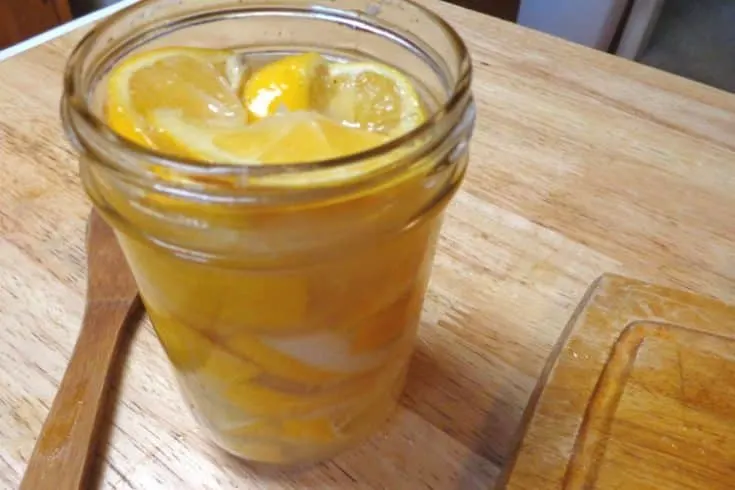
Make fermented lemons with just salt and lemons. The salt and lemon juice will combine to make a brine which will inhibit mold from growing and will allow beneficial bacteria to grow.
Ingredients
- 5-6 lemons
- 3 Tbsp sea salt
Instructions
- Make sure your lemons are clean and free of any bird droppings or visible dirt
- Cut the lemons into pieces. You can cut them into quarters but not quite all the way through. That way when they come out of the jar the whole lemon will come out together. Or, if you don't care about that just quarter them, or cut them into slices or chunks. Whatever look you like best is fine.
- Sprinkle salt on the inside of the lemon and put it into your mason jar. Continue cutting and salting and putting the lemons in the jar. When the jar is full, squish the lemons down and add more.
- The salt and the juice will combine to make a brine.
- When the jar is completely full and if the lemons aren't totally submerged in the juice, juice another lemon or two and add the juice to the top.
- Sprinkle with the last of the salt.
- Put plastic wrap over them and pushed the lemons down. You want to make sure that they stay totally submerged in the lemon juice.
- Put the lid on and set on the counter. You're going to let them sit out for two weeks. Make sure to turn over the jar upside each day to keep the salt from settling. After two weeks put them in the refrigerator. This will slow down the fermenting process.
- Preserved lemons can be stored in the refrigerator for up to a year.
Recommended Products
As an Amazon Associate and member of other affiliate programs, I earn from qualifying purchases.

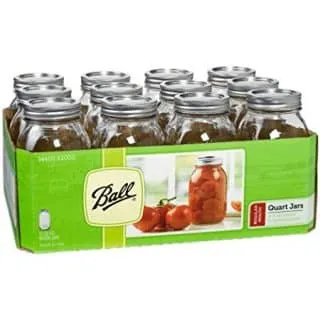
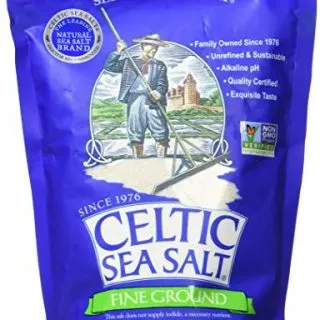
Lisa
Wednesday 19th of January 2022
Is the plastic placed on to keep air away from the lemons? So top with plastic, then lid. Or can the can the jar be topped just with the mason jar lid?
Angi Schneider
Friday 21st of January 2022
Yes, just to keep out the air. Also, once it starts fermenting the acid can corrode a metal lid. You can use a fermenting weight if you don't want plastic. Also you can use a plastic lid instead of a metal one.
Kim C
Friday 17th of July 2020
How do you turn these over if they are not sealed tight? I have fermenting pickle pipes and weights to keep them emerged do I have to use plain lids instead so I can turn them over? Wouldn't the salt be throughout the brine enough to just leave fermenting on the counter?
Angi Schneider
Friday 17th of July 2020
Hi Kim, I just tighten the lid momentarily and turn them over a couple of times and then loosen it again. If you're using a fermenting weights and lid, I wouldn't worry about turning it over.
Amelia Nielson-Stowell
Monday 16th of March 2020
Step 7-8, you put the plastic on...then mention putting the lid on. Are you just putting the metal ring on top of the plastic wrap or are you putting the metal top on as well? Do they need to "burp" and have some air in them? Thanks so excited to make these!
Angi Schneider
Monday 16th of March 2020
I just put the metal band on over the plastic. No, they do not need to "burp" because it won't be and airtight seal. Enjoy!
TakaRai X.
Wednesday 4th of March 2020
This may seem like an odd question, I am wanting to eat more fermented foods for the benefit for adding the gut (and the microcosm living there). I happen to have an abundance of lemons available - which brought me here. The recipe sounds wonderful! My question however is, will these fermented lemons provide the beneficial effects for the gut as would something such as fermented cabbage? Or is this completely different?
Angi Schneider
Thursday 5th of March 2020
Not an odd question at all! Yes, fermented lemons have beneficial microbes that are gut friendly, just like other fermented food such as sauerkraut.
Susan Jackson
Sunday 31st of March 2019
I just made this recipe today. There is a ton of lovely juice and you only mention using the lemons themselves. Will the brine (lemon juice) be too salty to use for anything ? Also I used an easy ferment lid with a weight and I am wondering how critical turning it upside down is?
Angi Schneider
Monday 1st of April 2019
Oh, definitely use the juice! I need to edit the post and mention that. I use it to season dips or veggies. It is salty but it gets less salty as it ages. I hear it makes a mean margarita so if you enjoy those you might give it a try. As far as turning them upside down, I would just look for salt collecting in the bottom of the jar. The salt needs to be throughout the jar to inhibit bacteria growth, so if you see a bunch collecting on the bottom, just open the jar and give it a stir. Then put your weight and fermentation lid back on.